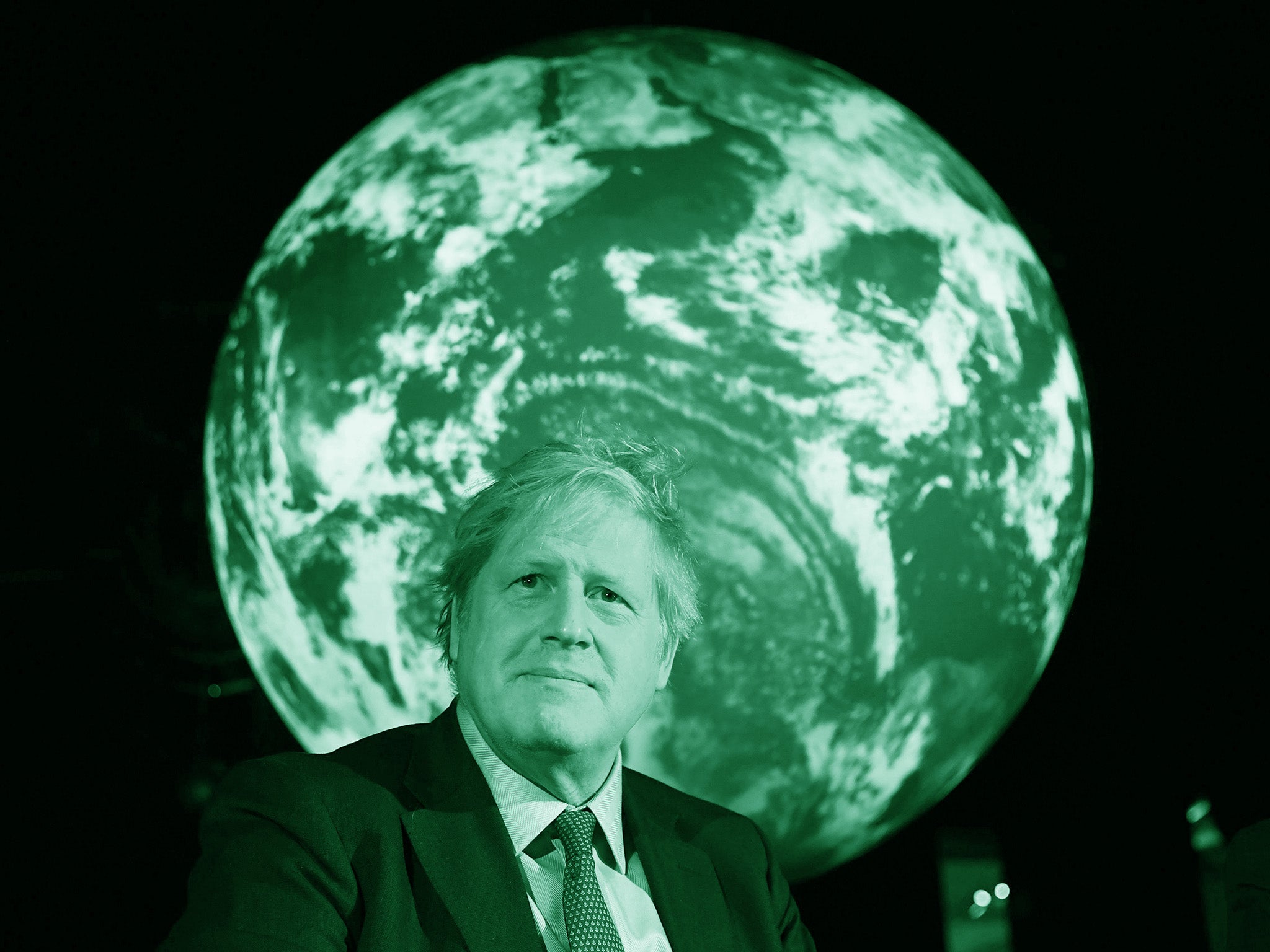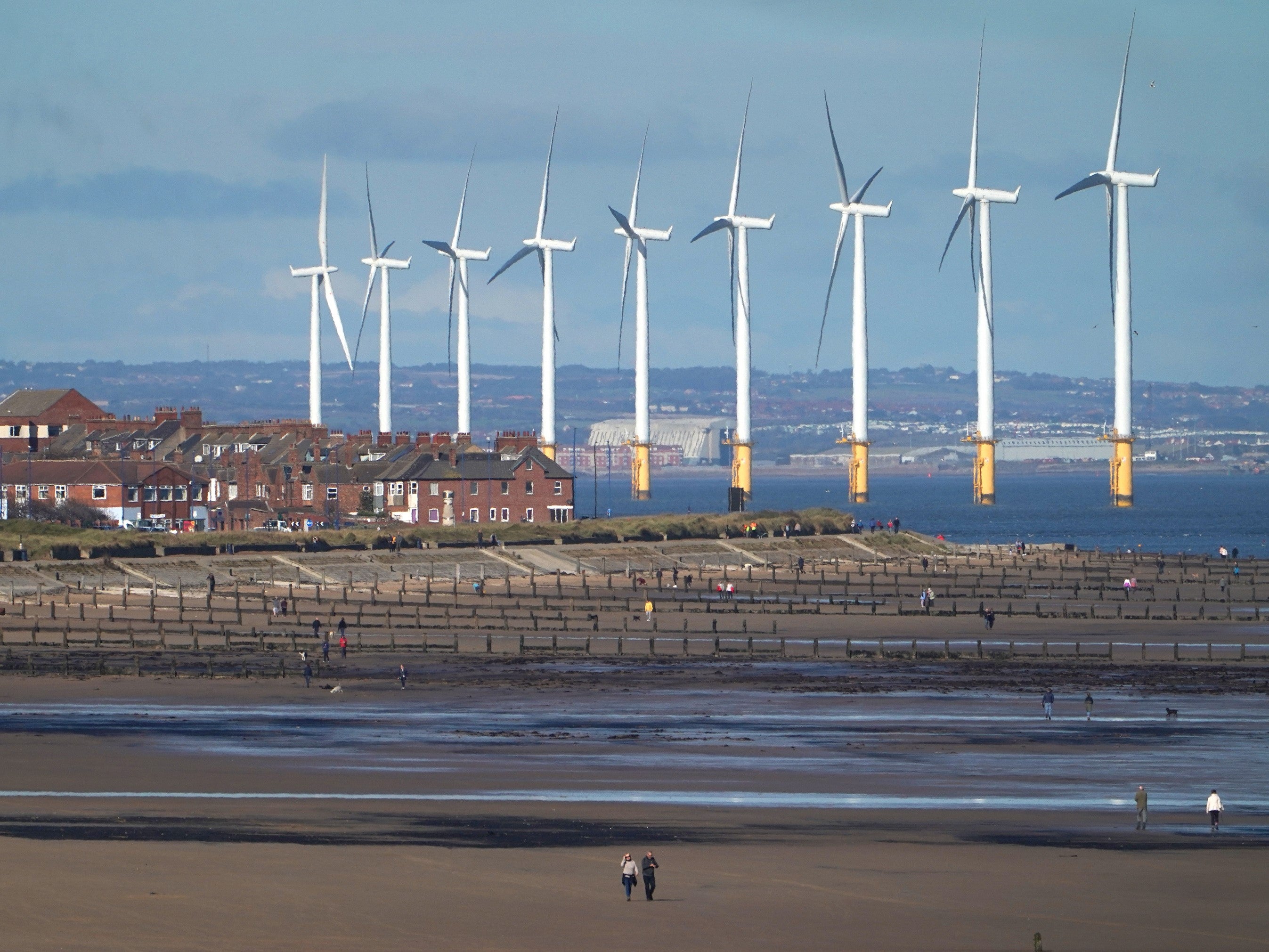Climate crisis: Is the UK doing enough to meet its net-zero promises?
- What are the government’s promises?
- How do ministers say the targets will be met?
- Why does the CCC say not enough is being done?
- What action does the CCC want to see taken?

The UK’s pledge to slash carbon emissions by 78 per cent over the next 14 years will not be delivered unless more ambition action is taken, official climate advisers have warned.
The target won praise after being submitted to the UN ahead of November’s Cop26 conference as part of the UK’s official climate plan.
But the Committee on Climate Change, which advises the government, has said this week that ministers do not yet have the policies in place to ensure the promise does not get broken.
“We need to walk the talk and urgently deliver actions in the Net Zero Strategy,” said John Gummer, the committee’s chair.
What are the government’s promises?
In 2019, it was enshrined in UK law that the country must be net-zero by 2050.
In April of this year, Boris Johnson’s government went further and announced two further targets: to slash carbon emissions by 68 per cent by 2030 and by 78 per cent by 2035.
This pledge was submitted to the UN ahead of November’s Cop26 conference as part of the UK’s official climate plan and was widely praised as a world-leading commitment.
How do ministers say the targets will be met?
To reach its goals, the government promised a range of measures in a Net Zero Strategy published in October.
They included phasing out gas boilers in homes by 2035, mandating for carmakers to sell more electric cars, and further growing offshore wind and other renewables: by 2035, the plan said, the country would be entirely powered by clean electricity. There would also be a greater investment in hydrogen production and a tripling of woodland.
Speaking at the time of the strategy’s publication, Boris Johnson said: “The UK’s path to ending our contribution to climate change will be paved with well-paid jobs, billions in investment and thriving green industries – powering our green industrial revolution across the country.”
Yet, even then, environmentalists – while welcoming the promises – were sceptical, warning that ministers had consistently failed to achieve similar targets in the past.
Why does the CCC say not enough is being done?
In a post-Cop26 assessment published on Thursday, the CCC welcomed the summit as marking “a step forward in global efforts to address climate change”.
But it said that, at present, the UK itself did not have the policies in place to ensure it would meet the targets it had set.
“The next year is critical for climate action in the UK and internationally,” said Lord Deben, John Gummer, chair of the CCC. “At home, we need to walk the talk and urgently deliver actions in the net zero strategy.”
In a pertinent warning, he added that success would ultimately only be “measured in climate risks averted – not words on a page”.

Teesside Wind Farm near the mouth of the River Tees off the North Yorkshire coast (PA) What action does the CCC want to see taken?
Recommendations from the CCC fall largely into two broad areas in the new assessment.
Firstly, that more action should be taken to address emissions in more sectors. And, secondly – and perhaps more importantly – that there should be greater monitoring to ensure targets are actually being met.
Ministers should consider overhauling the tax system to eliminate fossil fuel subsidies, the report states. New legislation should compel companies to decarbonise their supply chains. And ways of halting the import of high-carbon goods should be looked into.
It says more must be done on implementing change in the agricultural sector; and also calls for behavioural change – including reducing meat eating and limiting flying – to be recognised as key to achieving success.
But crucially, it also suggests that the UK must begin to act on what it has already promised.
“The UK should focus its efforts on strengthening delivery rather than increasing its headline target, and seek ways to supplement current plans,” it says.
And it adds: “These need a clear vision backed by quantitative targets, strong cross government policy to respond to key climate risks and a robust approach to monitoring and evaluation.”
Internationally, meanwhile, it calls for the UK to play a “vital role in driving progress…across mitigation, adaptation and finance”, and calls for the restoration of 0.7 per cent of GDP to be spent on international aid to help climate initiatives across the world.
Join our commenting forum
Join thought-provoking conversations, follow other Independent readers and see their replies
Comments
Bookmark popover
Removed from bookmarks